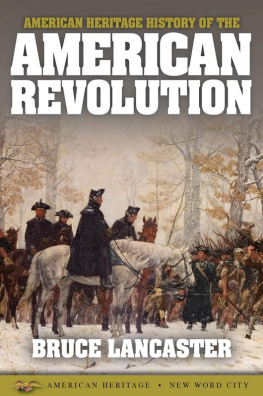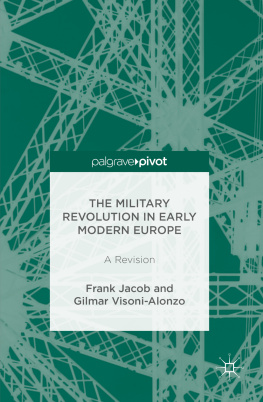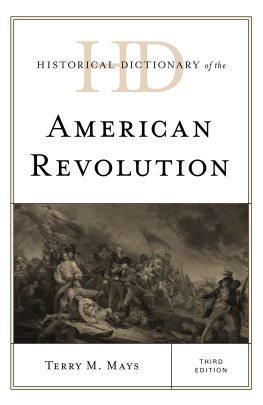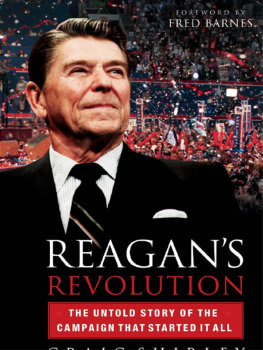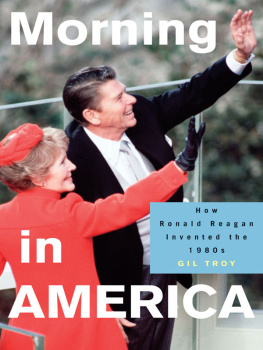THE GRENADA REVOLUTION

Anton L. Allahar and Shona N. Jackson
Series Editors
THE
GRENADA
REVOLUTION
Reflections and Lessons
Edited by Wendy C. Grenade

www.upress.state.ms.us
The University Press of Mississippi is a member of the Association of American University Presses.
Copyright 2015 by University Press of Mississippi
All rights reserved
Manufactured in the United States of America
First printing 2015
Library of Congress Cataloging-in-Publication Data
Grenade, Wendy C.
The Grenada Revolution : reflections and lessons / edited by Wendy C. Grenade.
pages cm. (Caribbean studies series)
Includes bibliographical references and index.
ISBN 978-1-62846-151-0 (cloth : alk. paper) ISBN 978-1-62846-152-7 (ebook) 1. GrenadaHistory19741983. 2. GrenadaPolitics and government19741983. 3. New Jewel Movement (Grenada) 4. Coard, Bernard, 1944 Interviews. 5. GrenadaHistoryAmerican Invasion, 1983Causes. I. Title.
F2056.8.G79 2015
British Library Cataloging-in-Publication Data available
CONTENTS
Wendy C. Grenade
Historicizing Grenada
Curtis Jacobs
Kari H. I. Grenade
Insiders Perspectives on the Grenada Revolution
Wendy C. Grenade
Brian Meeks
Patsy Lewis
Theoretical Critiques of the Grenada Revolution and Lessons for the Future
Hilbourne A. Watson
Tennyson S. D. Joseph
Horace G. Campbell
The Caribbean Left, Party Politics, and Political Transitions in Grenada
David Hinds
Wendy C. Grenade
Ralph E. Gonsalves
FOREWORD
On March 13, 1979, Grenadas New Jewel Movement stunned its Anglophone Caribbean neighbors by summarily removing from office the countrys prime minister, Eric Matthew Gairy, in the subregions first overthrow of an elected government. Grenada had become legally independent from Britain in February 1974, and March 1979 came just after the end of the countrys fifth year as an independent nation. Gairy had been accused of abusing the electoral system, and the New Jewel Movement was generally considered, even by detractors, to have the support of a majority of Grenadas voting-age population.
Four years after the overthrow of the Gairy government, what had come to be known as the Grenada Revolution collapsed after bloody infighting and the murders of prime minister Maurice Bishop, other ministers of government, and members of the public. From the United States, the Reagan administration used the opportunity to invade and ensure the demise of a regime of which it had become increasingly more suspicious. The Grenada Revolution was over. The year was 1983.
Now, after thirty years during which many key participants in the Grenada events have said little, Wendy Grenade brings together in this collection a broad variety of contributorskey participants as well as scholars and commentators on the eventsto help us analyze not only what took place but also, more importantly, what lessons might be learned from the triumphant beginning and painful end of the Grenada Revolution. The perspectives are varied. One major detail that all contributors appear to agree on is that brutal executions occurred on October 19, 1983.
Contributors to this collection take differing approaches to analyzing the nature of Grenadas New Jewel Movement and the political process that it led for four and a half years. One describes the end of the process as Stalinist; another comments that there was nothing Stalinist about it. There are differences, too, when contributors interrogate the role of the vanguard party and consider whether the collapse of the revolution indicated the failure in Grenada of notions of the Leninist vanguard, or the failure of the NJM leadership to fully understand the nature and meaning of vanguardism.
The varied approaches in this collection recall the responses to the 1983 collapse itself. They evoke the confusion and recrimination of the Caribbean Left and the profound sadness and self-examination that the October 1983 choices of the Grenada revolutionaries brought to Caribbean political organization and to supportive political movements internationally. Each contribution to the collection, not the least of these the editors interview with Bernard Coard, the surviving half of the Coard-Bishop duo most obviously at the center of the 1983 tensions, arouses complex emotions and doubtless, for many, disturbing memories.
The variety of perspectives is both informative and necessary, urging the reader to consider themes of memory and history. In his book States of Memory: Continuities, Conflicts, and Transformations in National Retrospection, Jeffrey Olick reminds his readers:
Stable images of the past are not always demonstrably true images. Sometimes false ideas are transferred across generations and accepted as if they were true. And sometimes we do not know whether an account of the past is true or not. Truth value and its resistance to revision is plainly not the only source of the pasts stability.
Different versions of a painful story are to be expected, and the phenomenon of recording several different truths, which is obvious in this collection, is not unique to the Grenada story. By engaging with memory and interrogating history, the collection challenges critics of Caribbean political processes to be informed in their praxis by the lessons drawn from the errors and triumphs of the Grenada Revolution. Throughout the collection, readers are both informed by the recounting of memories and encouraged to analyze by the outlining of historical and political circumstances. The juxtaposition of the two makes fascinating and informative reading. Thirty years after the end of the political process that came to be known as the Grenada Revolution, the reader might find it useful, when confronted with a recounting of the emotions surrounding both the beginning and the end of those four and a half years of Grenadas story, to consider what Pierre Nora has to say about memory and history:
Memory and history, far from being synonymous, are... in many respects opposed. Memory is life, always embodied in living societies, and as such in permanent evolution, subject to the dialectic of remembering and forgetting, unconscious of the distortions to which it is subject, vulnerable in various ways to appropriation and manipulation, and capable of lying dormant for long periods, only to be suddenly awakened. History, on the other hand, is the reconstruction, always problematic and incomplete, of what is no longer. Memory is always
Some of the contributions to this collection suggest reminiscences and still anguished analysis by key participants in the events. Some present perspectives by those who had close alliances with key participants or with the New Jewel Movement. Others suggest a complex engagement with memory and history or an attempt to focus more on what historical and political processes suggest. Participants and commentators appear more willing, in this thirtieth year, to discuss the triumph and the tragedy of the Grenadian and wider Caribbean story and to suggest lessons for new generations. For those interested in examining the lessons of sociohistorical and political processes, this is an excellent anthology.
Next page



